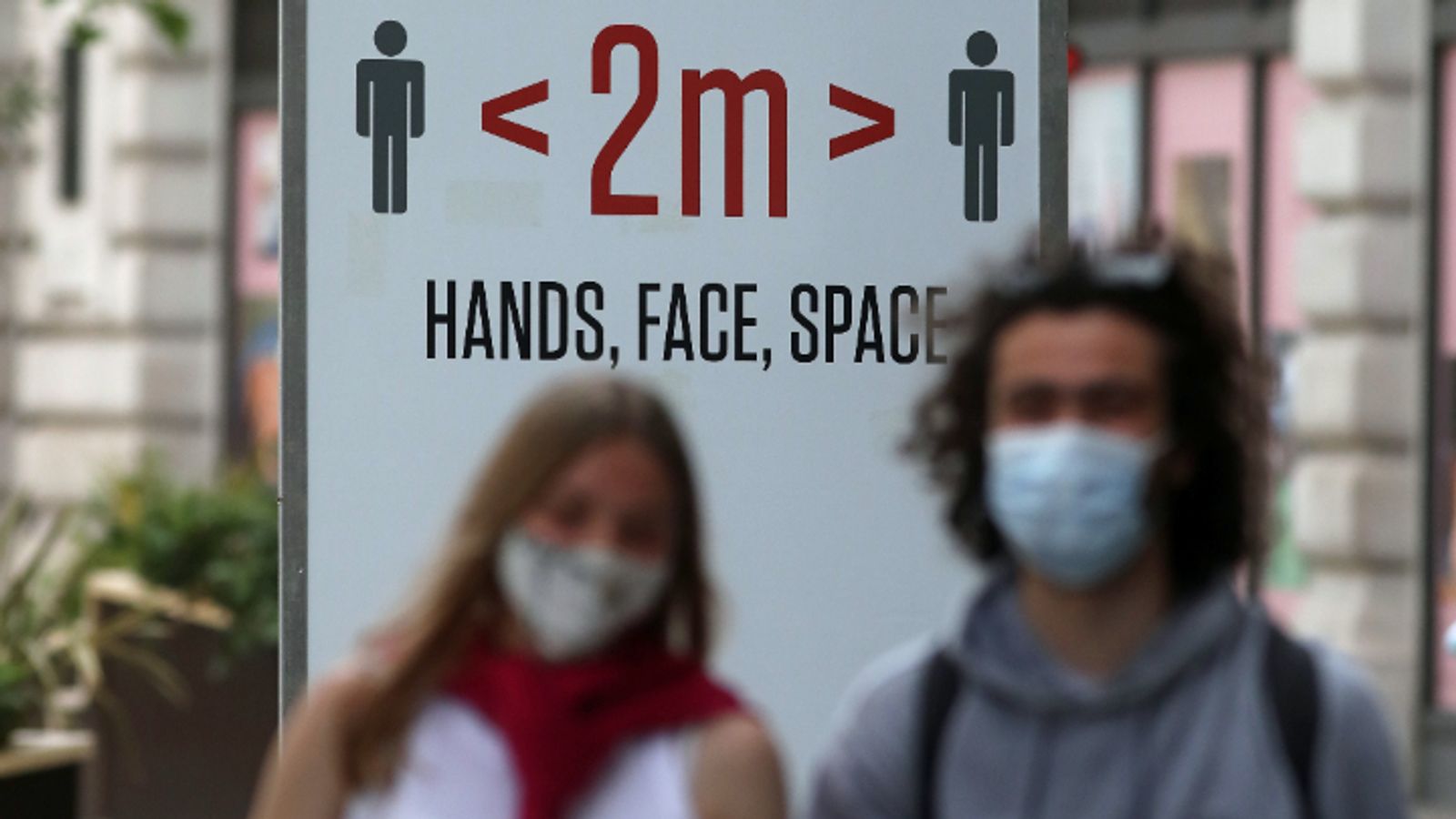The decrease in the number of confirmed COVID-19 cases released by the government each day “looks a bit fishy”, according to a leading symptoms researcher whose study has shown infections are on the rise.
Professor Tim Spector, who co-founded the ZOE COVID Symptom Study app, said a “sudden drop” in people testing positive for the virus in the government’s data is “very suspicious”.
Live COVID-19 updates from the UK and around the world
His study has shown around one in 84 people are contracting the virus every day, which is roughly 60,000, whereas latest government figures released on Wednesday suggest 27,734 tested positive in the last 24 hours.
Of the roughly 60,000 testing positive according to ZOE data, 36,000 of those are unvaccinated and 24,000 have received at least one dose.
Talking about the decline in cases in the data released by the Department of Health, Prof Spector said: “It’s dropped something like 30% in two days, which is pretty much unheard of in pandemics, and remember this is happening without restrictions, without lockdowns, without some sudden event.
“To me, it looks a bit fishy.
“It looks as if there’s some other explanation for this other than suddenly the virus has given up.”
He added that the ZOE study shows cases are on the rise and the “dramatic drop” in government figures is one “which we haven’t seen before, even in the other waves and lockdowns”.
Please use Chrome browser for a more accessible video player
The ZOE app is the world’s largest study of COVID-19 and has more than four million global contributors logging information on symptoms, tests and vaccines.
Prof Spector claims it is also the “only independent check on government data”.
One of the possible explanations behind the decline in cases, according to the professor, are fewer young people getting tested.
He said: “Looking at our own data, there’s a suggestion that we are seeing a reduction in the cases of the young and so they have been largely driving these figures for the last month or so, and that could be that less young people are getting tested.
“We are not able to easily get those government figures, but if the proportion of young people being tested is going down and older people is going up, that could explain this change.”
People not getting tested due to concerns over the “pingdemic” and not wanting to self-isolate is also a “potential phenomenon that’s upsetting” the data, adds the professor.
Please use Chrome browser for a more accessible video player
He also noted that schools breaking up for the summer holiday, and children no longer being tested regularly could have an effect.
“Keeping an open mind, we don’t know exactly what’s going on, just very suspicious of these dramatic changes and how they’ve occurred,” he said.
As well as raising his concerns over the data, Prof Spector called out the government for still not updating its advice on COVID-19 symptoms.
The app has shown a headache is now the most reported symptom of the virus, whereas the only common symptoms recognised by the government have remained unchanged for some time: a high temperature, a new and continuous cough, and a loss of taste and/or smell.
Previously he had announced some of the classic symptoms were not even making it into ZOE’s top 10, with a fever the only original sign still being commonly reported.
He said: “It is disappointing that the UK government still hasn’t recognised this or updated any of the advice, despite other countries having done so.”
Follow the Daily podcast on Apple Podcasts, Google Podcasts, Spotify, Spreaker
The study also recently conducted a survey of more than 700,000 people in the UK about the NHS Test and Trace app, which found 22% of people asked said they had downloaded the app but then deleted it.
Around 425,000 have had the app switched on since downloading it and roughly 10% of people asked had been pinged and told to isolate at some point.
Prof Spector said: “That is an enormous number of people and if we look at the data the highest number of isolation pings have been sent to the youngest users of the app.”
Some 28% of people told to isolate by the app in the last month were aged between 17 and 25, while less than 5% were aged over 75.






















